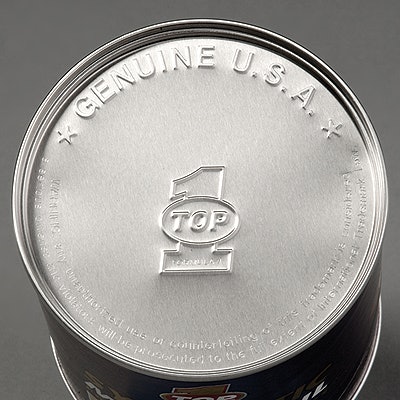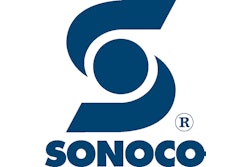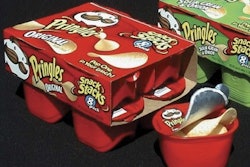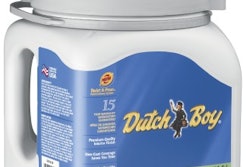
Both ends are embossed with the company’s Top 1 logo and the words “Genuine U.S.A.” Ends are also incised (or etched) with a message that reads, “WARNING: any unauthorized use or counterfeiting of this trademark is considered a serious offense and violators will be prosecuted to the full extent of International Trademark Law.”
The ends, as well as two sizes of composite cans, are supplied by Sonoco (Hartsville, SC). From the inside out, the container includes a low-density polyethylene/two plies of 100% recycled paperboard/ kraft-backed foil label printed in six colors. Top Oil uses 401x509 and 401x500 cans for its 1-qt and 800-cc sizes, respectively. Sonoco seams the bottom end to the can, shipping them and the top ends to a contract packer for filling and seaming on of top end. Between 10 and 15 different Top 1 oils are sold in the new containers with the aluminum ends.
“It’s amazing what counterfeiters in Indonesia will do,” says Joe Ryan, Top Oil’s vice president. In that country, he says, “the composite can is known as the ‘incredible shrinking can’ because of counterfeiters’ habit of cutting off the can’s end, pouring out the premium oil, refilling the can with used oil, seaming on a new end, and then selling it.”


























